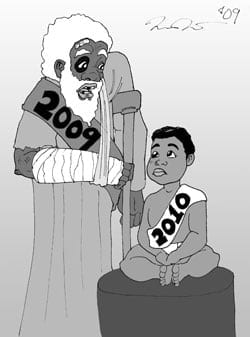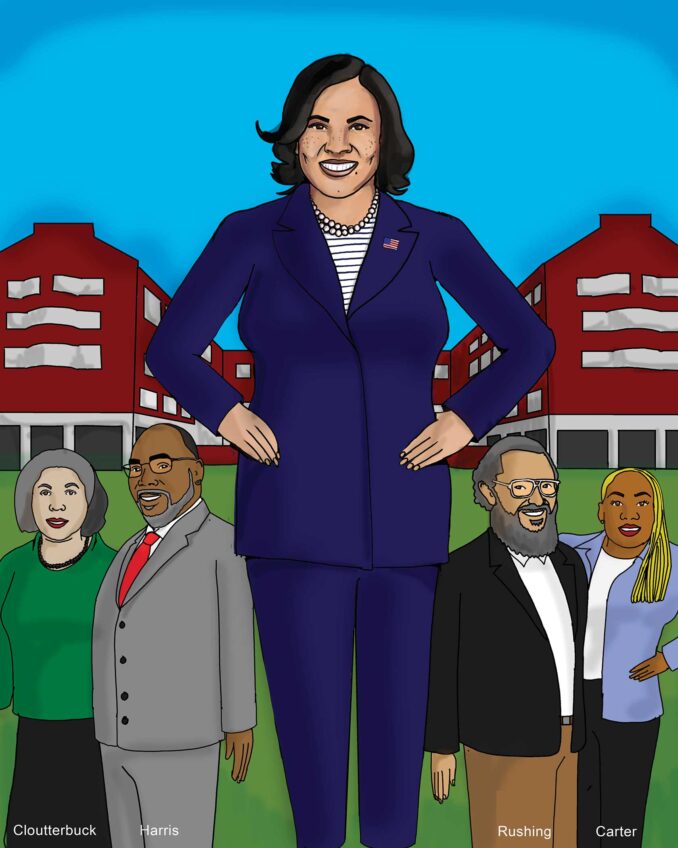
A New Year’s reflection
Socrates, the ancient philosopher, once said, “The life which is unexamined is not worth living.” The wisdom of this remark has stood the test of time. Now, millions of people in the Western world evaluate the events of the prior twelve months every New Year’s. They then attempt to make an adjustment in their lives to improve the possibility of attaining their personal goals.
Every year is not equally eventful. There are times when circumstances create expanded opportunities and the occasion for thinking about one’s status more optimistically. For example, the election of Barack Obama as president is a seminal event for African Americans. Now that Obama has completed one year of his term in office, it is timely for African Americans to assess the impact on their lives of having a black man in the White House.
It might be advisable to consider first the impact of other significant events on the lives of African Americans. Every individual can assemble a list of events based upon his or her perspective. Nonetheless, the first historical event to be noted by African Americans would have to be the enactment in 1865 of the 13th Amendment to the U.S. Constitution which outlawed slavery. This would be followed closely by the 14th Amendment in 1868 which granted citizenship to everyone born in America and established the principles of “due process” and “the equal protection of the laws.”
Racial progress came to an abrupt halt in 1896 with the U.S. Supreme Court decision in Plessy vs. Ferguson. The principle of “separate but equal” paved the way for Jim Crow and decades of racial discrimination. This notion was not repudiated by the Court until 1954 with the decision in Brown vs. Board of Education.
Prior to the Brown case, President Harry S. Truman (1945-1953) issued two significant executive orders in 1948: One desegregated the armed forces and the other prohibited racial discrimination in federal employment. However, it was the Brown case that inspired the militant civil rights movement that culminated in the enactment of the Civil Rights Act of 1964 and the Voting Rights Act of 1965 during the presidency of Lyndon B. Johnson (1963-1969).
Enforcement of the anti-discrimination laws has always been a problem. The Civil Rights Act outlawed racial discrimination in employment, education and places of public accommodation, but President Richard M. Nixon (1969-1974) became the father of affirmative action. He understood that in the absence of a discriminatory policy or racially offensive remarks, the only way to assure compliance with the law is the satisfaction of an objective numeric standard.
A historical review of race in America will establish that the benefits from the events set forth above did not occur instantly. In fact, Douglas A. Blackmon, in his book “Slavery by Another Name,” asserts that forms of slavery of blacks in the U.S. actually continued until about World War II. Nonetheless, there seems to be a delusional attitude among some African Americans, that like the coming of the Messiah, Barack Obama can instantly make all things right.
However, all would agree that the election of Obama enhanced the status of blacks in American society. Also, the election process should have imbued blacks with a profound awareness of their capacity for generating political power. It is now up to African Americans to embrace political power as a necessary strategy to achieve full equality.
Obama has already given much. It is now up to each individual to examine his or her life to determine how to make their lives more worth living.






